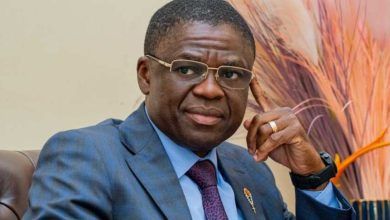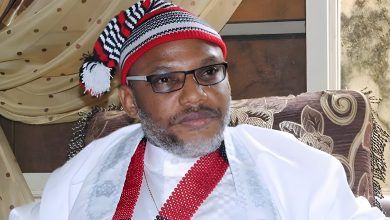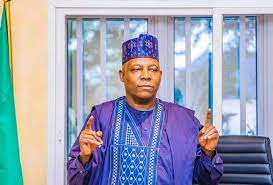Bangladesh Protesters Want Nobel Laureate Muhammad Yunus to Lead Government

A key organizer of Bangladesh’s student protests has called for Nobel Peace Prize laureate Muhammad Yunus to be named as the head of a new interim government, a day after longtime Prime Minister Sheikh Hasina resigned and fled the country after weeks of deadly unrest.
Nahid Islam, the organizer, in a video post in social media said the student protest leaders have already talked with Yunus, who consented to take over considering the present situation of the country.
Bangladesh’s figurehead president and its top military commander said Monday that an interim government would be formed soon.
Yunus, who called Hasina’s resignation the country’s “second liberation day,” faced a number of corruption accusations and was put on trial during the former prime minister’s rule. He received the Nobel in 2006 after he pioneered microlending, and he said the corruption charges against him were motivated by vengeance.
Islam said the student protesters would announce more names for the government, and it would be a difficult challenge for the current leadership to ignore their choices.
Hasina resigned and fled the country Monday after weeks of protests against a quota system for government jobs descended into violence and grew into a broader challenge to her 15-year rule. Thousands of demonstrators stormed her official residence and other buildings associated with her party and family.
Her departure threatened to create even more instability in the densely populated South Asian nation that is already dealing with a series of crises, from high unemployment to corruption to climate change. Amid security concerns, the main airport in Dhaka, the capital, suspended operations.
The streets of Dhaka appeared calmer Tuesday, with no reports of new violence. Jubilant protesters were still thronging the ousted leader’s residence. Some even took selfies with the soldiers guarding the building, where a day earlier angry protesters had looted furniture, paintings and even the former prime minister’s flowerpots and chickens.
On Tuesday, the operations at Dhaka’s main Hazrat Shahjalal International Airport resumed after eight hours of suspension.
Violence just before and after her resignation left at least 109 people dead and hundreds of others injured, according to media reports, which could not be independently confirmed. More than a dozen were reportedly killed when protesters set fire to a hotel owned by a leader in Hasina’s party in the southwestern town of Jashore. More violence at Savar, just outside Dhaka, at least 25 people died, the reports said. Another 10 people died in Dhaka’s Uttara neighborhood.
In the southwestern district of Satkhira, a total of 596 prisoners and detainees escaped from a jail after an attack on the facility, the United News of Bangladesh agency reported.
It said the jailbreak took place on Monday evening amid chaos gripping the country, as police stations and security officials were attacked across the country.
Police in Dhaka mostly left their stations and assembled in a central barracks in fear of attacks after several stations were torched or vandalized.
The military chief, Gen. Waker-uz-Zamam said he was temporarily taking control of the country, and soldiers tried to stem the growing unrest. Mohammed Shahabuddin, the country’s figurehead president, announced late Monday after meeting with Waker-uz-Zamam and opposition politicians that Parliament would be dissolved and a national government would be formed as soon as possible, leading to fresh elections.
Speaking after the embattled leader was seen in television footage boarding a military helicopter with her sister, Waker-uz-Zaman sought to reassure a jittery nation that order would be restored. Experts, though, warned the road ahead would be long.





